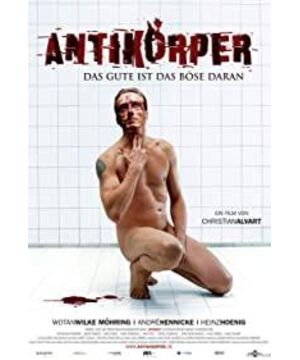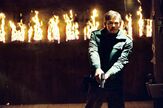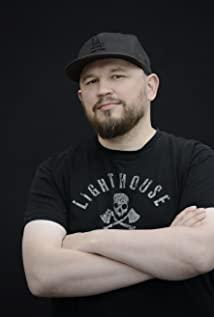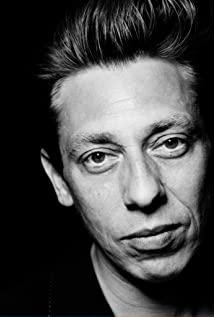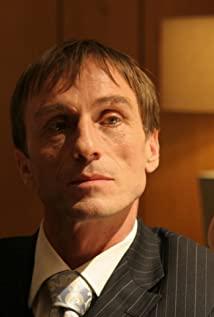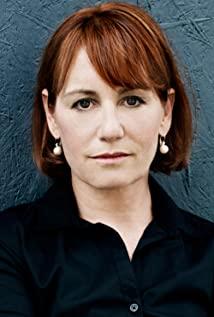"You have a smelly rural smell, you are as smelly as law and order." Angel induced Mike through the iron fence of the prison, because he saw a trace of real darkness in the rural policeman with the face of a saint. So he decided to nurture and love this darkness, just as he did when he killed 12 boys.
At first glance, the film seems to be a German reprint of "The Silent Lambs". The atmosphere of suspense and horror is realized by the delicate depiction of criminal psychology. Perhaps there is still a taste of "Rashomon". When the facts of the case are gradually "discovered", they are peeled off layer by layer, from one confusing to another confusing.
Yes, all these "déjà vu" make this film more like a second-rate work. Germans may not be good at telling stories, but they have the interest in taking the problem to the bottom.
Mike is a police officer in a simple village, and a murder case broke the local peace. Rukia, a 12-year-old girl, was murdered. Her body was found on the dock by the lake. After being raped and killed, her body was cut open.
People think that the murderer is a perverted killer who happens to be here, but Mike has a strong feeling in his heart-the murderer is hiding by his side, wandering in or around this village, and he cannot be brought to justice for a day. Scattered.
Mike is decent, meticulous, and very enthusiastic about others. He is simply a saint. However, we all know that the so-called sacredness is actually a kind of sensitivity. The saint can keenly perceive the call of pure good, but can also clearly perceive the surge of evil.
He often taught his son: "Evil starts with something very small. When it is still very young, we should clip it into the bud. We should not endure evil."
Mike's son Kris Ting has just entered puberty and is full of vague curiosity about sex. Mike seemed to see the evil sprouting in his son.
And Lao Tzu's preaching to his son lacks inherent persuasiveness, because Mike also found the seeds of evil in his own body. It was this little seed that was discovered by the keen Angel, which made him ecstatic.
Angel described his first impression of Mike in this way: "You seem to be the kid playing the policeman in a game of police and the thief. You won't be a good thief." The murderer and the saint shared something in common. As close as twin brothers, they are playing a game with different roles but the same rules.
Mike went to the city to cooperate with the investigation. He wanted to find out if Angel was the murderer who killed Rukia, but so far the police have determined based on the suspect's confession that he only killed boys.
It's not so much evidence that makes Mike suspect that someone else killed Rukia, it's better to say that he didn't believe that Anger was the murderer in the case at first. The reason is simple. If Angel is the murderer, then the conclusion will be obvious. This does not fit Mike's intuitive feeling about the real murderer-the real evil is hidden.
The film designed a tortuous plot, trying to show the dramatic process of discovering "who is the murderer". However, if we focus on this kind of things, we will inevitably fall into stereotypes. In fact, the best part of this film lies in the battlefield on Mike's soul, which is where the director shines most.
"I didn't do it, but I know who did it, because I witnessed the whole process." Angel's words confirmed Mike's inner guess, although the latter did not admit it on the surface. So Mike was more active than before to doubt and torture the people around him, his neighbors, and his fellow villagers. This is in line with his philosophy: evil is lurking around us.
In the eyes of Angel, who is comfortable with evil, Mike was only a pupil in the "Devil's School". He did not realize that the evil was not around him, but in everyone's own body. To foster and nurture the evil in Mike's body has become an extremely exciting task for Angel.
Sage Mike was inspired by evil. When the detectives of the city police station asked him to go to the nightclub to "hug left and right hug", he rightly refused. But he quietly ran to sleep with a salesperson whom he had just met, betraying his promise of loyalty to marriage. "What were you thinking in your head when you slept with a woman?" Angel's question kept burning Mike's nerves.
If the upper part of the film is the protagonist of darkness, showing the saint’s depravity step by step, then the lower part can be called the "good counterattack". The paradox is that pure good is led to victory by evil.
Mike, who returned to the Holy Spirit, regretted it. He confessed to the priest that he was tempted by a man, Satan's alliance, and molested his wife. He realized that he had been infected by the devil, and began to question what he once thought was justified.
"God must have a dark side." Mike felt that he was hovering and echoing between evil and justice, and everything was disintegrating.
The priest resolutely rejected him: "This is disrespect to God!"
Confession could not solve Mike's doubts, and the priest's guidance was ineffective and empty. In desperation, he turned back to "seeking help" to Angel. The best part of the film lies here, where good and evil are intertwined in a subtle relationship.
It is difficult for us to judge Angel's behavior with ordinary eyes, because on the surface, he did construct a conspiracy to trap Mike.
Angel told Mike that the murderer of Rukia was not someone else, but his "good son" Christine, who was a born evil species. Mike was completely furious. It was not Angel’s lie that made him break down, but this conclusion seemed to be what was expected. All the evidence came to fit seamlessly, so that the court in his heart had already found Kreis. Ting is the murderer, and the case is like a mountain.
Maybe Mike didn’t want to admit it, but his heart that was hanging from looking for evil finally fell. The evil was in his son, and the heirs he gave out just revealed the hiding of evil in his own blood. Deep understanding of the book.
And it was at the pinnacle of despair that the goodness of the saint broke ground, with incomparable determination.
The director appropriately quoted and imitated the story in the "Old Testament". The Lord asked Abraham to use his son for sacrifice. When the pious Abraham raised the sharp knife to his son, the archangel came down from the sky to end this test of faith.
Mike concealed the "truth" that Angel told him from the police and decided to kill the evildoer himself. At the very moment when he was about to raise his gun to "execute", the city detective came with a secret confession from Angel to prevent the tragedy. Mike wept with joy. He hugged his wife and son tightly. He felt that Christine was pure, and he was also pure, and the world was clean as a result.
This film is not an avant-garde film, it has thinking, but it will not challenge the ethical authority of the public. Therefore, the director must portray Angel as a vulgar and conspiracy demon, and of course at the same time make Mike's sanctity become superficial. The director compensated for this regret with the title. The so-called "antibody" means using poison to shape health. This allows the "eye-sighted person" to still see his "abnormal" thinking, which can be regarded as the director's "spring and autumn style".
View more about Antibodies reviews


